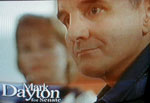Political Ads Playing Loose with Facts
By Laura McCallum
September 8, 2000
Part of our Campaign 2000 Ad Watch series
An estimated $7 million has already been spent on ads in Minnesota's DFL Senate primary race, and the candidates are increasing their presence in the final days of the campaign. The three big spenders - Mike Ciresi, Mark Dayton and Rebecca Yanisch - are running new television spots touting their various endorsements, but the ads of all three contain some misleading elements, according to an ad analyst.
UNTIL NOW, THE THREE DEMOCRATS have largely run "bio" ads or issue ads on health care, Social Security and gun control. But in the final sprint toward the primary, the three are going for the hard sell, trying to convince a big bloc of undecided DFL primary voters.
Analyst Dean Alger, the Minnesota Director of the Alliance for Better Campaigns, found little to criticize in the previous ads, but now finds misleading statements in each of their final spots.
Former State Auditor Mark Dayton is running a 60-second television spot, which lists his priorities and experiences as a former teacher and head of three state agencies.
"I'm unable to identify any really significant action that he has taken to take on the big polluters and big oil. So the average viewer will assume there's some sort of record of legislation or watchdog effort as Auditor or whatever, but I don't see the evidence for that," says Alger.
Recent polls have shown Dayton with a significant lead over his three primary opponents, which may be why trial lawyer Mike Ciresi goes after him by name in one of his latest ads. (Listen to ad)
"The average viewer that's just coming off summer vacation and is now finally paying attention to the campaign, to see that claim, they're going to wonder, 'My God, does this man have a criminal record? Does he have some sort of nefarious activity in his background?' So that part goes over the line and is not fair," Alger says.
Like Ciresi, businesswoman Rebecca Yanisch cites a newspaper endorsement in her new ad.
"The quote is accurate, purely about prescription drugs, but then the voice-over goes on to say, 'and insure every child.' The MPR story did not say that. Yanisch did have the most detailed plan on prescription drugs as of the MPR story on July 24, but now Mike Ciresi has a rather detailed plan himself of five points, and this ad is running now, not back in July 24. As a result, viewers now will conclude that Yanisch has the most detailed plan, and that's a little bit misleading."
Alger does compliment all three candidates for running largely issue-based ad campaigns, mostly free of negative attacks. The fourth major Democrat in the race, party endorsee Jerry Janezich, started running his first television ad this week, trying to distinguish himself as the only non-millionaire in the race.
Minnesota unions are also running two pro-Janezich TV spots, one talking about his legislative career and the other featuring a testimonial by Senator Paul Wellstone. Janezich's campaign wouldn't say how much it's spending on its television ad buy, but admitted it's less than $100,000.
The only Senate candidate who's spent even less on television advertising is the Independence Party's endorsed candidate, James Gibson. He's spending less than $15,000 to run a two-part ad series poking fun at his lack of name recognition. In the first ad, Gibson walks around downtown Minneapolis interviewing people.
In the second ad, Gibson tells people about his Senate bid. Gibson's campaign produced the commercials themselves, and Gibson proudly claims that they're not low budget, they're no budget. Despite their inexpensive nature, Alger says they're, by far, the most fun of the Senate campaign, and if the post-primary campaign gets negative and nasty, television viewers will pine for the Gibson ads.
He says it's unfortunate that not many voters will actually see them; they're largely running on cable, given the campaign's limited budget.
By Laura McCallum
September 8, 2000
Part of our Campaign 2000 Ad Watch series
|
|
RealAudio 3.0 |
An estimated $7 million has already been spent on ads in Minnesota's DFL Senate primary race, and the candidates are increasing their presence in the final days of the campaign. The three big spenders - Mike Ciresi, Mark Dayton and Rebecca Yanisch - are running new television spots touting their various endorsements, but the ads of all three contain some misleading elements, according to an ad analyst.
UNTIL NOW, THE THREE DEMOCRATS have largely run "bio" ads or issue ads on health care, Social Security and gun control. But in the final sprint toward the primary, the three are going for the hard sell, trying to convince a big bloc of undecided DFL primary voters.
Analyst Dean Alger, the Minnesota Director of the Alliance for Better Campaigns, found little to criticize in the previous ads, but now finds misleading statements in each of their final spots.
| |
|
|
|
||
Ad: It's a record of taking on powerful special interests, and fighting for people, and that's exactly what his campaign for U.S. Senate is all about. He's had the courage to take on the HMOs, the big drug companies, the polluters and big oil ...Alger takes issue with that part of the ad. While Dayton has certainly criticized HMOs, and drug and oil companies, Alger says the ad overstates Dayton's role.
"I'm unable to identify any really significant action that he has taken to take on the big polluters and big oil. So the average viewer will assume there's some sort of record of legislation or watchdog effort as Auditor or whatever, but I don't see the evidence for that," says Alger.
Recent polls have shown Dayton with a significant lead over his three primary opponents, which may be why trial lawyer Mike Ciresi goes after him by name in one of his latest ads. (Listen to ad)
Ad: The Star Tribune says Ciresi's true to DFL principles, a defender of ordinary people, and unlike Dayton, would attack drug costs with a five-pronged strategy. The Duluth News says Dayton's past haunts this campaign. Ciresi's the one ...Alger says that quote is taken out of context. The Duluth News Tribune's endorsement goes on to say the reason Dayton's past haunts him is because he lost statewide elections in 1998 and 1982.
"The average viewer that's just coming off summer vacation and is now finally paying attention to the campaign, to see that claim, they're going to wonder, 'My God, does this man have a criminal record? Does he have some sort of nefarious activity in his background?' So that part goes over the line and is not fair," Alger says.
| |
|
|
|
||
Ad: The Pioneer Press says Rebecca Yanisch would bring a different voice, and common sense to the Senate. Once a single mom without health insurance, she offers the most detailed plan to make prescriptions affordable, and insure every child...The ad quotes a Minnesota Public Radio story from July which said Yanisch had a more detailed prescription drug proposal than her DFL opponents. (See story) But Alger says that's not what the announcer says in the ad.
"The quote is accurate, purely about prescription drugs, but then the voice-over goes on to say, 'and insure every child.' The MPR story did not say that. Yanisch did have the most detailed plan on prescription drugs as of the MPR story on July 24, but now Mike Ciresi has a rather detailed plan himself of five points, and this ad is running now, not back in July 24. As a result, viewers now will conclude that Yanisch has the most detailed plan, and that's a little bit misleading."
Alger does compliment all three candidates for running largely issue-based ad campaigns, mostly free of negative attacks. The fourth major Democrat in the race, party endorsee Jerry Janezich, started running his first television ad this week, trying to distinguish himself as the only non-millionaire in the race.
| |
|
|
|
| |
|
The only Senate candidate who's spent even less on television advertising is the Independence Party's endorsed candidate, James Gibson. He's spending less than $15,000 to run a two-part ad series poking fun at his lack of name recognition. In the first ad, Gibson walks around downtown Minneapolis interviewing people.
In the second ad, Gibson tells people about his Senate bid. Gibson's campaign produced the commercials themselves, and Gibson proudly claims that they're not low budget, they're no budget. Despite their inexpensive nature, Alger says they're, by far, the most fun of the Senate campaign, and if the post-primary campaign gets negative and nasty, television viewers will pine for the Gibson ads.
He says it's unfortunate that not many voters will actually see them; they're largely running on cable, given the campaign's limited budget.


